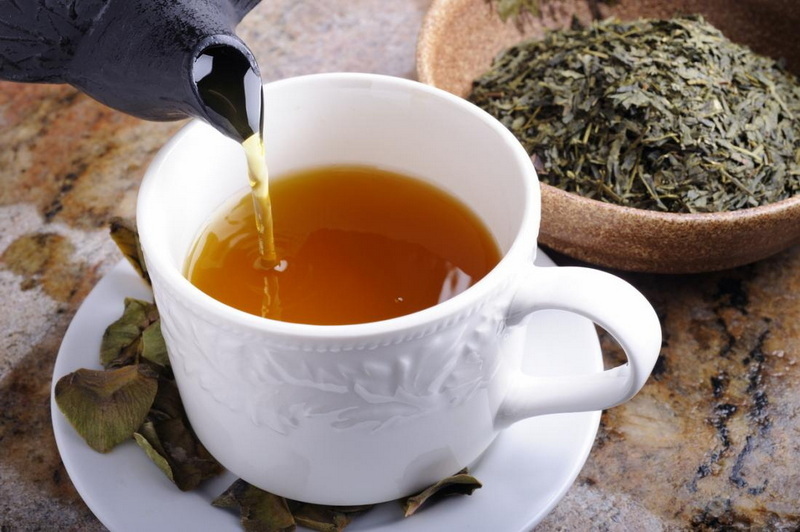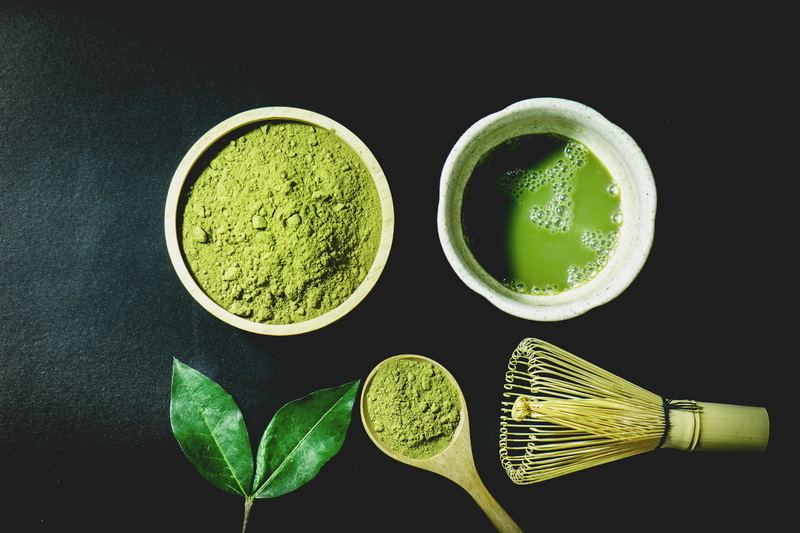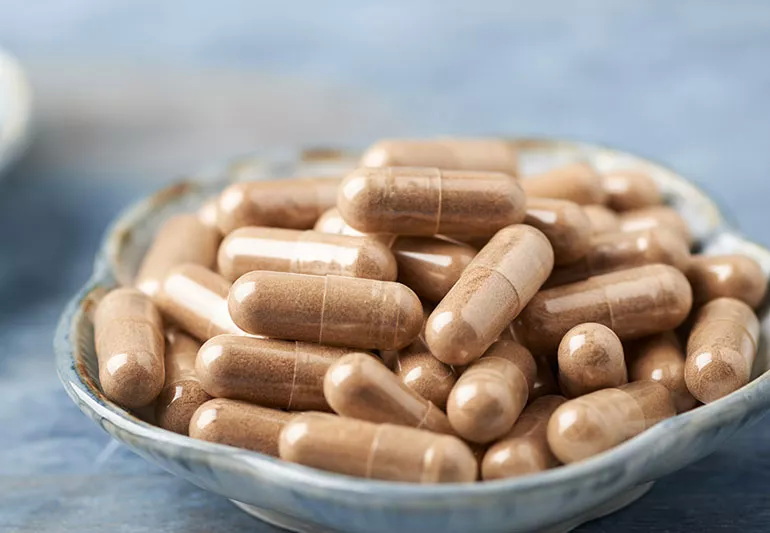Content Menu
● The Power of Green Tea Extract
● Health Benefits of Green Tea Extract
>> 1. Promotes Weight Loss and Fat Burning
>> 2. Enhances Heart Health
>> 3. Boosts Brain Function
>> 4. Supports Liver Health
>> 5. May Help Prevent Cancer
>> 6. Improves Skin Health
>> 7. Supports Dental Health
>> 8. May Help Manage Diabetes
>> 9. Reduces Inflammation
>> 10. Enhances Exercise Performance and Recovery
● How to Use Green Tea Extract
● Potential Side Effects and Precautions
● Conclusion
● Frequently Asked Questions
>> 1. How much green tea extract should I take daily?
>> 2. Can green tea extract help with weight loss?
>> 3. Are there any side effects of taking green tea extract?
>> 4. Can I take green tea extract if I'm pregnant or breastfeeding?
>> 5. How long does it take to see the benefits of green tea extract?
● Citations:
Green tea extract has gained significant popularity in recent years due to its numerous health benefits. This concentrated form of green tea contains powerful antioxidants and bioactive compounds that can positively impact various aspects of our health. In this comprehensive article, we'll explore the many benefits of green tea extract and why it might be a valuable addition to your wellness routine.

The Power of Green Tea Extract
Green tea extract is derived from the leaves of Camellia sinensis, the same plant used to make green tea. However, the extract is a more concentrated form, often containing higher levels of beneficial compounds like catechins and epigallocatechin gallate (EGCG). These potent antioxidants are responsible for many of the health benefits associated with green tea extract[1].
Health Benefits of Green Tea Extract
1. Promotes Weight Loss and Fat Burning
One of the most well-known benefits of green tea extract is its potential to aid in weight loss and fat burning. The combination of catechins and caffeine in green tea extract has been shown to boost metabolism and increase fat oxidation[1][4].
A systematic review and meta-analysis of nearly 60 studies involving over 3,800 participants found that green tea extract significantly reduces body fat percentage. The effects were more pronounced in individuals under 50 years old[4].
2. Enhances Heart Health
Green tea extract has been linked to improved cardiovascular health. Studies have shown that it can help reduce blood pressure and improve blood fat levels, both of which are risk factors for heart disease[1].
A large study in Japan followed 40,000 adult participants over 11 years and demonstrated that daily consumption of green tea was associated with a lower risk of death from cardiovascular diseases. The minimum daily consumption required to see this benefit was 5 cups per day[2].
3. Boosts Brain Function
The antioxidants in green tea extract, especially EGCG, have been shown to protect brain cells from oxidative stress. This protection may help reduce brain damage that could lead to mental decline and brain diseases like Parkinson's, Alzheimer's, and dementia[1].
Green tea extract also contains L-theanine, an amino acid that works synergistically with caffeine to improve brain function. L-theanine provides relaxation without sedation, helping to improve focus and cognitive performance[5].
4. Supports Liver Health
Green tea extract has shown promise in supporting liver health. Some studies suggest that it may help protect against liver diseases and reduce the risk of liver cancer[1][9].
The antioxidants in green tea extract can help reduce inflammation and oxidative stress in the liver, potentially preventing or slowing the progression of liver diseases.
5. May Help Prevent Cancer
While more research is needed, some studies suggest that green tea extract may have anti-cancer properties. The high concentration of antioxidants, particularly EGCG, may help prevent the growth and spread of cancer cells[1][9].
A large clinical study in Southeast China found that the risk of prostate cancer decreased with increasing frequency, duration, and quantity of green tea consumption[9].
6. Improves Skin Health
Green tea extract has been shown to have beneficial effects on skin health when applied topically or taken as a supplement. It can help treat various skin concerns, including dermatitis, rosacea, and acne[1].
The antioxidants in green tea extract may help protect the skin from UV damage and signs of aging. Some studies have shown that consuming green tea extract can improve skin elasticity and reduce the appearance of fine lines and wrinkles[1].
7. Supports Dental Health
Green tea extract may help promote oral health by reducing the growth of harmful bacteria in the mouth. Studies have shown that it can help prevent dental cavities and reduce bad breath[1][5].
The catechins in green tea extract have antibacterial properties that can inhibit the growth of bacteria responsible for tooth decay and gum disease.
8. May Help Manage Diabetes
Green tea extract has shown potential in helping to manage type 2 diabetes. It may help regulate blood sugar levels and improve insulin sensitivity[9].
Animal studies suggest that green tea may help prevent the development of type 1 diabetes and slow its progression. However, more research is needed to confirm these effects in humans[9].
9. Reduces Inflammation
The powerful antioxidants in green tea extract have anti-inflammatory properties that may help reduce inflammation throughout the body. This can be beneficial for various conditions, including arthritis, inflammatory bowel diseases, and skin inflammation[1][9].
10. Enhances Exercise Performance and Recovery
Some studies suggest that green tea extract may improve exercise performance and recovery. The catechins in green tea extract can increase fat oxidation during exercise, potentially improving endurance and reducing fatigue[1].
Additionally, the anti-inflammatory properties of green tea extract may help reduce muscle damage and soreness after intense exercise, promoting faster recovery.

How to Use Green Tea Extract
Green tea extract is available in various forms, including capsules, liquid extracts, and powders. The recommended dosage can vary depending on the specific product and intended use. Generally, a dosage of around 250-500 mg of green tea extract per day is considered safe and effective for most people[4].
It's important to note that green tea extract contains caffeine, which may cause side effects in some individuals. If you're sensitive to caffeine or have any underlying health conditions, it's best to consult with a healthcare professional before adding green tea extract to your routine.
Potential Side Effects and Precautions
While green tea extract is generally safe for most people when used in moderation, some potential side effects and precautions should be considered:
1. Caffeine sensitivity: Green tea extract contains caffeine, which may cause jitters, anxiety, or sleep disturbances in sensitive individuals.
2. Iron absorption: Green tea extract may interfere with iron absorption. If you have iron-deficiency anemia, it's best to consume green tea extract between meals.
3. Liver concerns: In rare cases, high doses of green tea extract have been associated with liver problems. It's essential to follow the recommended dosage and consult with a healthcare professional if you have any liver conditions.
4. Interactions with medications: Green tea extract may interact with certain medications, including blood thinners and some antibiotics. Always consult with your healthcare provider before adding green tea extract to your regimen, especially if you're taking any medications.
Conclusion
Green tea extract offers a wide range of potential health benefits, from promoting weight loss and heart health to supporting brain function and skin health. Its high concentration of antioxidants and bioactive compounds makes it a powerful supplement for overall wellness.
While more research is needed to fully understand the extent of its benefits, green tea extract shows promise in various areas of health and may be a valuable addition to a balanced lifestyle. As with any supplement, it's essential to use green tea extract responsibly and consult with a healthcare professional before incorporating it into your routine, especially if you have any underlying health conditions or are taking medications.

Frequently Asked Questions
1. How much green tea extract should I take daily?
The recommended dosage of green tea extract can vary depending on the specific product and intended use. Generally, a dosage of 250-500 mg per day is considered safe and effective for most people. However, it's always best to follow the instructions on the product label or consult with a healthcare professional for personalized advice.
2. Can green tea extract help with weight loss?
Yes, green tea extract may aid in weight loss. Studies have shown that the combination of catechins and caffeine in green tea extract can boost metabolism and increase fat oxidation. However, it's important to note that green tea extract should be used in conjunction with a healthy diet and regular exercise for optimal results.
3. Are there any side effects of taking green tea extract?
While green tea extract is generally safe for most people, some potential side effects may include caffeine-related symptoms such as jitters, anxiety, or sleep disturbances. In rare cases, high doses of green tea extract have been associated with liver problems. It's essential to follow the recommended dosage and consult with a healthcare professional if you experience any adverse effects.
4. Can I take green tea extract if I'm pregnant or breastfeeding?
It's best to consult with your healthcare provider before taking green tea extract during pregnancy or while breastfeeding. While moderate consumption of green tea is generally considered safe, the concentrated nature of green tea extract may pose potential risks. Your healthcare provider can offer personalized advice based on your individual circumstances.
5. How long does it take to see the benefits of green tea extract?
The time it takes to experience the benefits of green tea extract can vary depending on the individual and the specific health goal. Some effects, such as increased energy and mental alertness, may be noticed relatively quickly. However, other benefits, such as improvements in heart health or weight loss, may take several weeks or months of consistent use to become apparent. It's important to be patient and maintain a consistent regimen for the best results.
Citations:
[1] https://www.healthline.com/nutrition/10-benefits-of-green-tea-extract
[2] https://www.webmd.com/diet/health-benefits-green-tea
[3] https://www.alamy.com/stock-photo/green-tea-extract.html
[4] https://www.youtube.com/watch?v=kmlcjBJ05Sk
[5] https://www.youtube.com/watch?v=t4Gcrc9lMog
[6] https://www.zhounutrition.com/blogs/the-greatness-files/green-tea-extract-q-a
[7] https://pubmed.ncbi.nlm.nih.gov/38031409/
[8] https://www.medicalnewstoday.com/articles/269538
[9] https://www.mountsinai.org/health-library/herb/green-tea






























